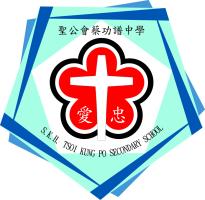| Language Policy |
1. Our school emphasizes biliteracy and trilingualism. Measures to promote English learning are as follows: a)Students are divided into different sets according to their English proficiency. b) Subjects taught in English are Integrated Science and Physics in junior elite classes as are NSS Physics and Chemistry. c)School-based exercise books and teaching sets are tailor-made for implementing teaching plans of the English Department. d)After school tutorial and enhancement classes are organized for both junior and NSS forms. e)Students interact with native English speakers through activities held in international schools. 2. Enhancing English Proficiency for all by: a)Morning reading periods, driven by the “Learning & Teaching Committee", encourage students to read graded English books according to their proficiency. b)An English room, equipped with cutting-edge technology, is specially designated to conduct English lessons and activities by the NET. "English Fun Day" is held to foster English learning. c)Cross-disciplinary teaching strategies are employed, so that students may learn and relate English in different subject areas. d)Native English tutors are employed to teach English musicals and dramas. |
| Learning and Teaching Strategies |
A unique "TKP Hierarchy of Learners", which includes "Active Learner" and "Critical Thinking Learner", serves as a model of advancement for the students. STEAM education is carried out in an interdisciplinary manner. Tiered elements or other feasible strategies are applied to cater for learner diversity. |
| School-based curriculum |
1. Electives: 2X and 3X. Electives: Mathematics Extended Module 2, Physics, Chemistry, Biology, Information and Communication Technology, Economics, Business, Accounting and Financial Studies, Chinese History, History, Geography, Tourism and Hospitality Studies, Visual Arts, Physical Education, Ethics & Religious Studies.<br> 2. Curriculum highlights: 1.School-based curriculum and classes: World Exploration, Positive Education Modules, Wealth Management Module of Life & Society, Family & Life Education, Life Planning Education as well as elite English class etc. 2.The introduction of a “tiered system” enables students to cope with and excel in their studies, assignments, tests and exam papers. 3.To develop students' different talents, our school encourages senior students to participate in the applied learning course. |
| Approach to Catering for Learner Diversity |
In order to catering for learner diversity, tiered system is applied to assignment design, teaching, tests and exam papers. Under the “strategic extended course scheme”, able students will participate courses for the gifted. Average students will join remedial classes after school and less capable students will participate in small-group or individual tutorial classes for various subjects. |
| Approach to Integrated Education |
1. Through efficient deployment of resources, our school provides suitable and diversified support to cater for the needs of all students.2. Co-operation between parents and our school’s Student Support Team is strengthened through operating various channels of communication. For example, the school briefs new students and their parents on the work of the Student Support Team during the annual F.1 orientation day.3. Members of the Special Educational Needs (SEN) Support Team consist of an SEN Coordinator, teachers, an education psychologist, a speech therapist, teaching assistants and support scheme instructors.4. Teaching assistants collaborate with teachers with the aim of enhancing the learning environment. Collaborative teaching, as well as learning groups and peer tutoring sessions, are strategically organized for the benefit of all students. Furthermore, assessment methods are regularly adapted to best facilitate students’ demonstration of their learning outcomes.5. The purchase of speech therapy services enables therapy sessions to run effectively in small groups or on an individual basis.6. Specific measures are taken to support students with SEN. In particular, “Read-and-Write” after-school classes are held in English and Chinese. Further individual education plans are constructed and developed by an educational psychologist.7. Inclusion Ambassadors are responsible for helping F.1 students adjust to their new school lives and integrating them into our school community.8. Students obtain social skills training by participating in a special program designed for students with autism.9. Teachers are offered opportunities for professional development on the topic of catering for students with SEN. |
| Education Support for Non-Chinese Speaking (NCS) Students |
|
| Home-School Co-operation |
1. The Parent-Teacher Association fosters close co-operation and effective communication between parents and teachers, building a caring culture in the school.<br>2. The Association organizes a number of activities, including outings, interest classes for students, parental education programmes and sharing sessions.<br>3. Parents serve as volunteers in committees / subject activities.<br>4. Parents’ handbook, Parents Kit and PTA newsletter are published annually. |
| School Ethos |
Through positive education, our school strives to nurture students’ growth mindset, character strengths, and well-being. As a result, students grow their capabilities to face challenges and difficulties in life with a positive outlook, and ultimately flourishing. |
| School Development Plan |
I. Demonstrate positive character and learn actively and conscientiously. II. Explore yourself, plan your life. III. Cultivate students' creative thinking. |
| Teacher Professional Training and Development |
The school places emphasis on staff professional development. We maintain close connections and collaborate with local institutes and universities, and organize diversified staff development programmes. As a result, the effectiveness of our teaching has continuously improved. Many of our worthwhile projects are funded through the Quality Education Fund, allowing our students to benefit fully from the experiences they provide. The Staff Development Committee also organises various types of staff development activities and peer observation of lessons. |
| Life-wide Learning |
1. Extra-curricular Activities: there are approximately sixty clubs and societies including Christian Fellowship, Erhu Class, Concert Band, Marker Club, Floral Art Club, Astronomy Club, Rope Skipping Club, Debate Club and Magic Club. We also have other service groups including Scout Troupes and Red Cross Youth, TV Media Production Service Group, Community Youth Club, Conservation Prefects, and Inclusive Education Ambassadors.2.Co-curricular Activities including cross-border visit, OLE Day, leadership training camp, art exhibition, Chinese and English musical performances, English drama class, English drama performance, cultural exchange forum in English. |
